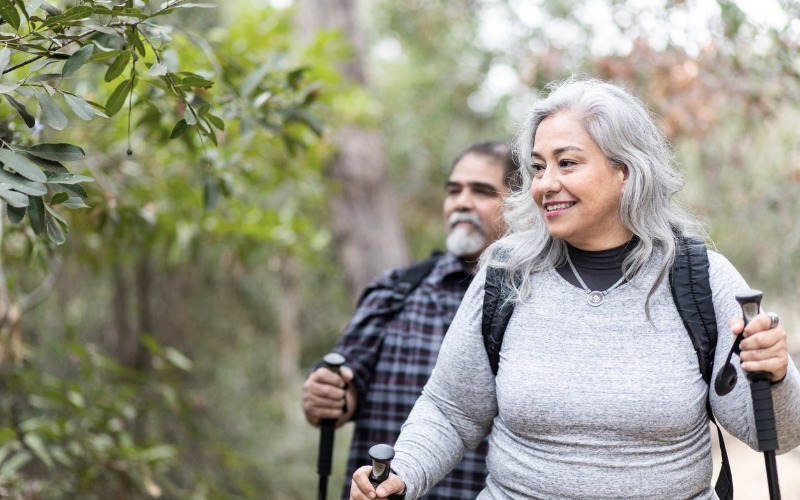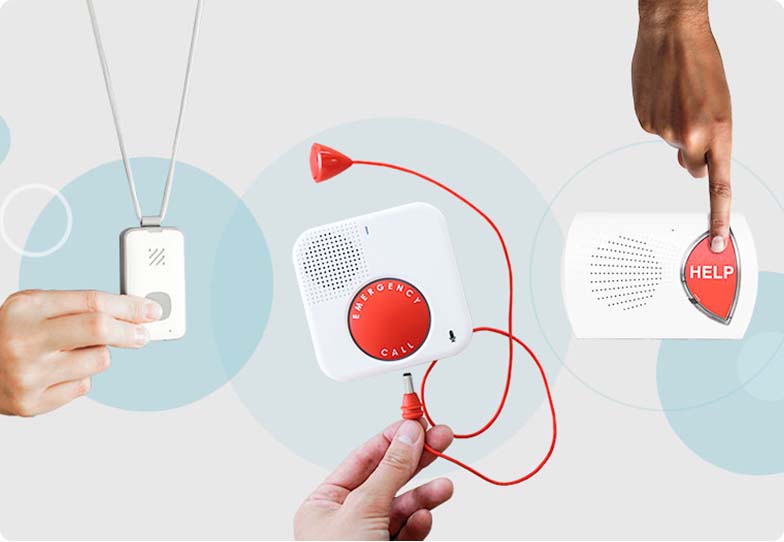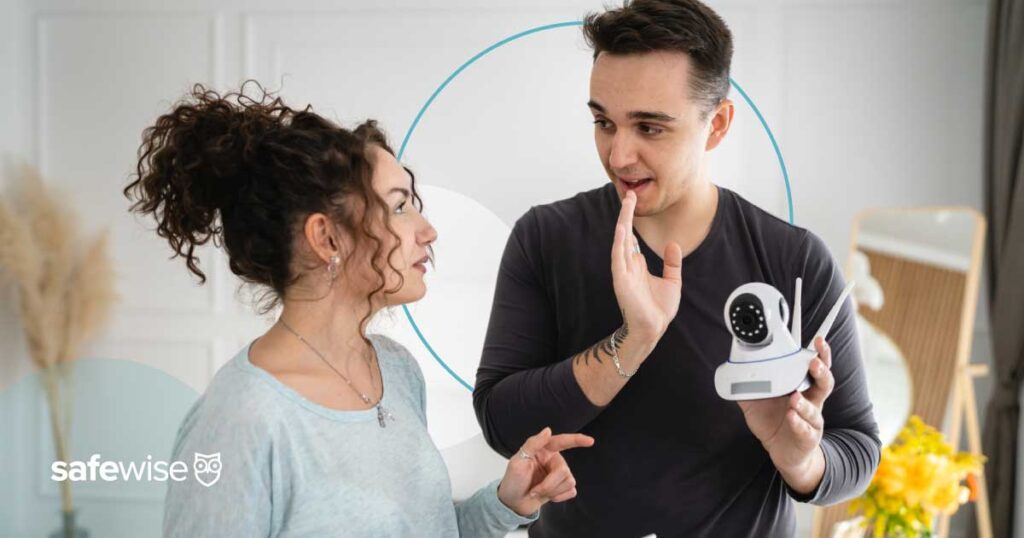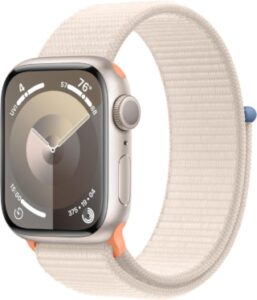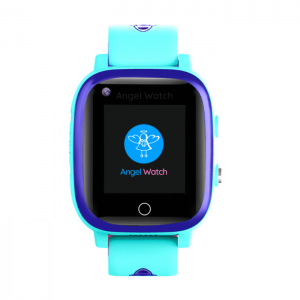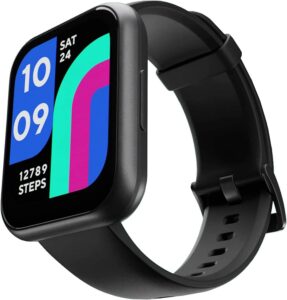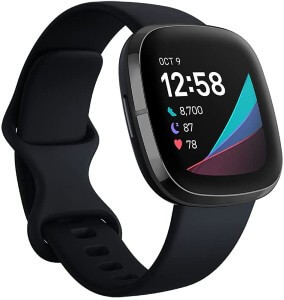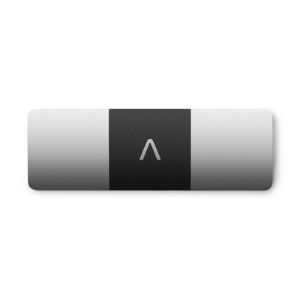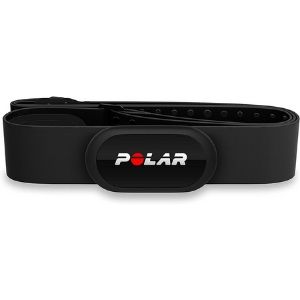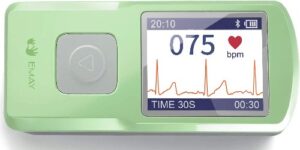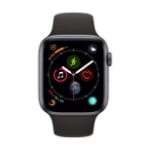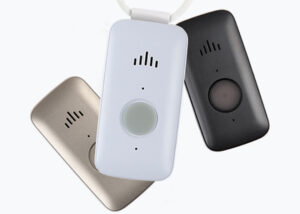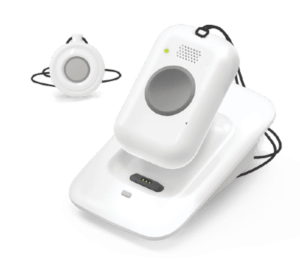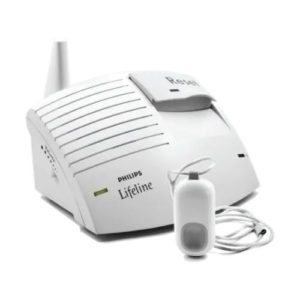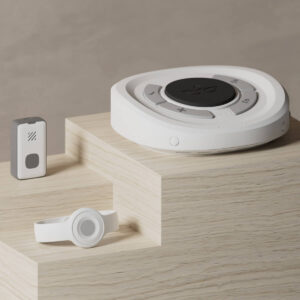Reviewed by health expert Sally Russell, MN, CMSRN, CNE
Best Fitness Tracker for Seniors
SafeWise experts have years of firsthand experience testing the products we recommend. Learn how we test and review.
If you’re looking for the best fitness tracker for seniors, the Apple Watch 9 is a heart monitor, calorie and step counter, sleep tracker, time-teller, and loved-ones-caller—all in one wrist-sized device. If you can measure it, Apple Watch 9 can probably track it. And while the Apple Watch will take a bite out of your wallet, its features are pretty sweet, especially when using it as a fitness tracker for seniors.
This device is part smartwatch and part fitness tracker. If you want a simple way to track your health or help a loved one do the same, it’s a versatile and high-tech choice.
Best fitness trackers for seniors (and all ages)
- : Best overall
- : Best for emergencies
- : Budget pick
- : Best for heart rate monitoring
- : Best for step counting

Compare senior fitness trackers
All of the senior fitness trackers we reviewed count steps, track sleep, measure heart rate, and remind you to move.
*Amazon.com price as of post date. Read full disclaimer.
Fitness tracker for seniors reviews
While these aren’t the only exercise watches for seniors we looked at, these are our favorites. We’ve also included standalone heart monitors that didn’t make it into the ranking—take a peek to see if they meet your needs.
1. Apple Watch 9: Best overall
It’s not the most affordable senior fitness tracker, but the Apple Watch 9 has the most perks, which can be well worth the money. Whether you’re watching your heart rate for fitness or medical reasons, the Apple Watch 9 provides straightforward and accurate ECG reporting. In addition to resting heart rate readings and sedentary alerts (reminders to move around), it can track sleep quality and dietary data.
Its large screen makes all this information easy to read. The display is also customizable, so you can make your screen layout work for you. To change the screen and make adjustments, just hold down and then swipe on the watch face. The Digital Crown and side button also make it easier to control for anyone with arthritis or stiff hands.
Our favorite senior-friendly feature is its automatic fall detection, something typically found in medical alert systems as well. Fall detection is a huge plus for older individuals choosing a senior fitness tracker.
If you fall at home or while out on a walk and can’t get up, the Apple Watch 9 will notice and call one of your emergency contacts. You can speak to the contact directly from the watch to get help.
Unfortunately, all these cool features don’t come cheap. The Apple Watch 9 is expensive, and its price can climb over $400 with various upgrades. It's one of the most expensive heart monitors on our list and runs out of battery in 18 hours. That said, it’s a pretty cool gadget with tons of health-focused apps and features.
Learn more in our Apple Watch review.
2. Angel Watch Series R: Best for emergencies
The Angel Watch Company designed the Series R with older adults in mind, so it includes a few extras like medication reminders, sedentary alerts, and automatic fall detection.
But the Angel Watch Series R is based on a kids smartwatch, so it retains some caregiver-friendly functions like GPS tracking, location history, video calling, and a three-second SOS button.
It's one of the best fitness trackers for seniors because it has built-in tech to help you if you get lost or hurt while logging your steps.
The Angel Watch holds its own against other fitness trackers for seniors by catering specifically to older individuals with:
- Step counters
- Live GPS monitoring
- Assistive speakerphone
- The ability to add multiple family members to monitoring
- Blood pressure
- Blood oxygen
- Body temperature
- Sleep quality
Learn more in our full Angel Watch review.
3. Wyze Smartwatch: Budget pick
Let’s face it. A lot of these heart rate monitors and fitness trackers aren’t exactly cheap. That’s why we included the Wyze Smartwatch as one of the most affordable senior fitness trackers.
At around $50, it’s super approachable and a great starter device for anyone beginning a fitness routine or tracking their heart rate. (It’s never too late to get started, right?)
The Wyze Smartwatch has a large text screen with simple icons and controls and not too many extras to get in the way of health tracking. Like the big brands, it tracks your heart rate, calories, steps, and sleep patterns to give you a clear picture of your total health. This is the best pedometer for seniors who aren’t as worried about fall detection or GPS monitoring.
If you have Wyze cameras, smart locks, or Wyze Home Monitoring you can also use your watch to control your home remotely. You can program your watch with up to 10 shortcuts to easily do things like turn off the lights, turn on cameras, or unlock the door.
As far as messaging goes, it’s more of a pager than anything. You’ll get alerts that you’ve received messages like texts or emails to your phone, but you won’t be able to respond. If you can’t get to your phone, this may be an issue for some.
4. Fitbit Sense 2: Best for heart rate monitoring
For almost a decade, Fitbit has been the name in fitness trackers. It’s a great pick for people of any age and fitness level to monitor their vitals and activity levels.
While the company has several choices of devices, we picked the Fitbit Sense 2 because of its large screen and ECG app compatibility.
Like other Fitbit models, the Sense 2 tracks sleep, steps, calories burned, and heart rate, and has a sedentary reminder to keep you moving. This fitness tracker for seniors also provides high and low heart rate alerts and monitors stress with an EDA sensor.
The Fitbit Sense 2 doesn’t have an emergency call button or fall detection like our top two choices, but it’s still feature-rich. Like the Apple Watch, you can connect it to your phone. So you can call your spouse with the grocery list while you’re out on a walk.
Its built-in Alexa or Google voice assistant can also connect to your home devices, set timers, and walk you through workouts when you download activities and skills.
You can even connect Fitbit Pay to your debit card and pay for things by tapping the watch (and impress the grandkids at the same time).
The Fitbit Sense 2 has a six-day battery life, but we recommend charging it every couple of days to keep it going.
Among Fitbit’s heart monitors and activity trackers is the Fitbit Charge 6. If you’re interested in just tracking your heart rate and activity levels, it has similar features to the Fitbit Sense 2, but it has a smaller screen and longer battery life (seven days versus six). You’ll still get access to the Fitbit app and tracking features but in a much simpler package.
5. MGMove: Best for step counting
Whatever your step goal, having a step counter can make your exercise much more fun. The MGMove is our pick for the best pedometer for seniors that doubles as a smart watch.
In addition to its pedometer, the MGMove has a weather app, messaging app, and SOS button that connects to professional monitors. You can loop in your loved ones to share step goals and activity.
When choosing a senior fitness tracker, the MGMove is great for people who want an easy-to-use step counter that doubles as an emergency button and smartwatch. Although the messaging app costs an extra fee per month, we highly recommend it, especially if you don't take your phone with you on walks.
Learn more about the MGMove in our full Medical Guardian review.
You’ve probably heard about how 10,000 steps per day is the key to good health. But recent studies have shown that as few as 4,000 can be just as beneficial for older folks (women in particular).1
Consider a heart rate monitor
If you want a standalone heart monitor, you don’t need to wade through piles of activity and fitness trackers to find one. We chose a few of our favorite heart monitors designed with medical monitoring in mind.
AliveCor Kardia Mobile
The AliveCor Kardia is a pint-sized EKG device that monitors your heart rate. To get your measurements, hold the device between your fingers and thumbs. You should get a reading within 30 seconds.
The device itself is screenless, so you’ll have to download the companion app to your mobile device. But from your phone, you’ll be able to see a personal six-lead EKG that will let you know how your heart’s doing. If you have an irregular heartbeat or heart issues, information like this can help inform your doctor about treatments to help you stay healthy.
Polar H10 Heart Rate Monitor Chest Strap
*Amazon.com price as of post date. Read full disclaimer.
If you want more accurate fitness-based heart rate readings, consider the Polar H10. This chest strap attaches directly to your chest (just under your heart) and uses electrical signals to read your heartbeat.
It connects to health and fitness apps like Fitbit and can provide you with in-depth data about your workouts or daily activity. The only issue is it may take a while to get used to because of its placement, but you can expect accurate readings from this device.
EMAY Portable ECG Monitor
EMAY’s portable heart rate monitor records Lead 1 ECG readings. It’s a pocket-sized device that you can press to your chest, legs, hands, or wrists to get measurements almost instantly.
You can sync it to your phone to keep a record of all these measurements to help with detecting arrhythmias and other heart issues. Much like the Kardia, these readings can help your doctor improve your treatments for heart health.
Final word on fitness trackers and exercise watches for seniors
Heart health and fitness are crucial to living a long healthy life. Even if you’re over 65, it’s never too late to take steps towards improving your heart. Heart monitors come with fitness trackers that count your steps along with your heartbeat or as medical-grade EKG or ECG monitors.
If you’re currently experiencing heart problems or have heart disease, consult your doctor before starting any new habits.
Heart and fitness monitors for seniors FAQ
It all comes down to specialization. Both devices can measure your heartbeat, but fitness trackers measure other things like your step count, calories, and even sleep patterns. Heart monitors can be fitness trackers or medical devices with in-depth EKG or ECG readings.
The standard target heart rate varies as we age. When exercising at 50% to 85% intensity, 60-year-olds should have a target active heart rate of 80 to 136 beats per minute (BPM). People who are 65 should have a target heart rate of 78 to 132, and those in their 70s should aim for 75 to 128 BPM.3
Home heart rate monitors come in two styles: classic chest strap or wristband tracker. Chest straps use an electrical pulse to read your heart rate, while wristbands use optical technology.
Although wristband monitors are the most popular choice, chest straps offer more accurate continuous heart rate information. However, they tend to be expensive and less comfortable. We recommend a wristband heart monitor for aging adults since they’ll be more comfortable to wear all day.
In addition to heart health and blood pressure, older adults have a few things to watch as they age. With falls being such a big threat to seniors every year, improving your balance and bone health is especially important.
Staying active, even just by increasing your step count, can help you burn calories, build muscle, and stay mentally active so you can enjoy your years ahead.
How we reviewed fitness trackers
Your heart rate is an indicator of your overall fitness and cardiovascular health. As we age, our chances of heart attack, stroke, coronary disease, and heart failure increase.2 So we picked fitness trackers and heart monitors with features that make tracking heart rate easy (and even fun) for seniors.
Qualities like large displays, messaging, comfortable or interchangeable bands, and expanded health-tracking capabilities were all at the top of our list.
We also browsed through consumer reviewers and expert opinions. Accurate readings, pricing, consumer interest, and smart tech capabilities were other qualities we put under the magnifying glass. To find out more about how we select our best picks, take a look at our methodology.
Compare the best medical devices for fall detection
Info current of post date. Offers and availability may vary by location and are subject to change. Read full disclaimer.
Related articles on SafeWise
Sources
- Harvard Health Publishing, “Do You Really Need to Take 10,000 Steps a Day for Better Health?” November 2019. Accessed Jan 17, 2024.
- American Heart Association, “All About Heart Rate (Pulse),” July 2015. Accessed Jan 17, 2024.
- Markus MacGill, Medical News Today, “What Should My Heart Rate Be?” January 2021. Accessed Jan 17, 2024.
Disclaimer
*Amazon.com list price as of post date. Product prices and availability are accurate as of the date/time indicated and are subject to change. Any price and availability information displayed on Amazon at the time of purchase will apply to the purchase of this product. Safewise.com utilizes paid Amazon links.
Certain content that appears on this site comes from Amazon. This content is provided “as is” and is subject to change or removal at any time.
Recent Articles

